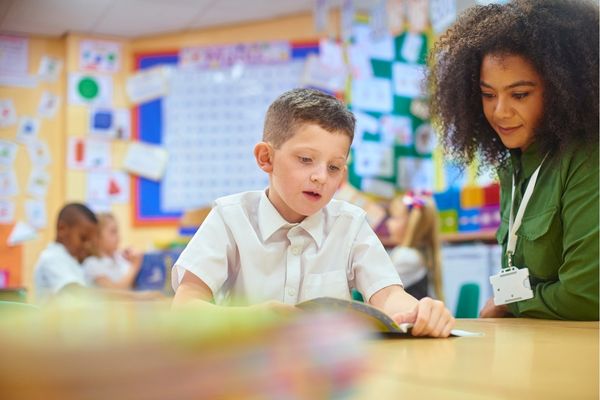Federal Adviser on Open Education Aims at Classrooms
March 01, 2016
Andrew Marcinek says he is focusing on the front lines in his new role as the U.S. Department of Education’s first open education adviser.
“I put on my teacher lens and try to see it from the teacher’s point of view,” says the former English teacher who served previously as director of technology in two Massachusetts school districts, “and how the teacher is going to bring more open educational resources into his or her classroom.”
Free, openly licensed resources are teaching, learning and research materials in the public domain, freely available over the web. They range from podcasts to digital libraries to textbooks and games.
Marcinek says these resources open doors for teachers who “feel limited by textbooks and what they can teach. … We’re hoping teachers will have more flexibility and the ability to really get recognition for being the content specialists that they are.”
If he were back in the classroom, Marcinek says, he would work with his English department as a team to seek open teaching resources that could replace textbooks and enrich instruction. As school districts move deeper into using online resources, he expects they will use a mix of digital lessons with commercial instructional materials.
“We are not trying to take a textbook away from (teachers) and say, ‘You have to create a textbook on your own,’” he says. “We want to give them access to high-quality resources that you can change and adapt. … You have more creative control over the educational resources.”
Marcinek, who joined the Office of Educational Technology last September, says he also will help superintendents see the possibilities of open educational resources for their districts. Ten districts already have committed to replace at least one textbook with open materials by fall.
“I think everyone is feeling comfortable that this is not going away and that we are supporting this,” he says. “In a few years, our hope is we have a critical mass, a community of educators, a shared culture of learning, sharing resources across state lines.”
Marcinek
can be reached in the U.S. Department of Education’s Office of Educational Technology at 202-453-5710 or 570-259-1114. His e-mail address is andrew.marcinek@ed.gov, and his Twitter
handle is @andycinek.
Advertisement
Advertisement
Advertisement
Advertisement



